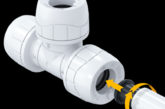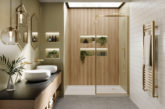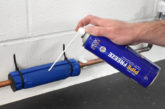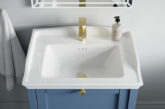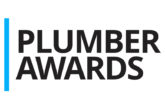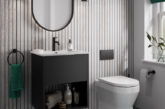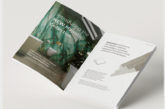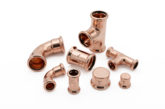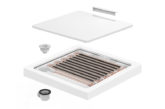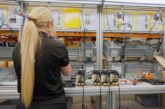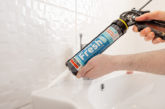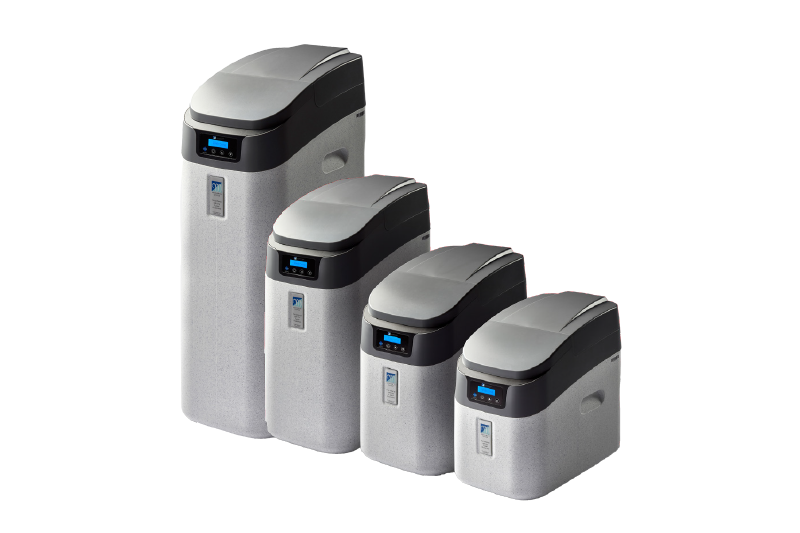
Water softeners, filters and purifiers are the sustainable solution to hard water, says Dario Palumbo, Marketing Manager at Monarch Water.
The white cliffs of Dover are an iconic representation of the British Isles and showcase the sedimentary rock upon which the UK sits. Although only visible at various coastal points across England, the chalky white rocks lie underneath large parts of England and beyond.
Although aesthetically pleasing, these rock formations have a direct impact on water quality within the region where they are situated. Typically, in areas where the bedrock comprises sedimentary rocks, such as chalk and limestone, water is classed as hard as it has a high mineral content.
As rainwater falls its makes its way through the earth and rocks. In areas where sedimentary rocks are present, the water dissolves small amounts of chemical compounds, such as calcium and magnesium, as it passes. It takes on these minerals and passes it into the water supply.
As the south east of England is predominantly made up of chalk and limestone regions it has the hardest water in the UK. However, 60% of the UK receives a hard water supply.
Hard facts
Although large areas of the UK are having to deal with the issues that hard water causes, many consumers don’t realise the extent of the problems that limescale has on their homes.
Heating and plumbing installers are best placed to highlight the serious problems that limescale is causing to customers’ homes. This will not only help their customers protect their homes, but open up a new line of revenue for installers too.
Hard water causes deposits of scale around the home that are difficult to shift. However, it’s the hidden damage that most homeowners are unaware of that can cost them the most.
Limescale build-up inside pipes and on heating elements inside household equipment, such as boilers, showers, dishwashers and washing machines, will not only make them less efficient, but more costly to run too. In fact, according to British Water, just 1.6mm of limescale on a heating element makes it work 12% harder.
Sustainable technology
When it comes to improving the quality of water in homes, installers can recommend their customers to take measures to both soften and filter their water supply, by installing a water softener to protect household appliances, and filter tap for premium quality drinking water.
Consumers’ increased focus on sustainability means that they will be looking for eco solutions for their homes. High efficiency water softeners, for example, are the best option for households who want to remove existing limescale and prevent any new deposits forming inside their equipment.
By recommending the latest generation of water softeners, featuring Opti-Brining technology, installers can help their customers enjoy the benefits of soft water with a clear conscience. These models only regenerate when needed, using 12% less salt and 24% less water than previous models, making them a sustainable solution to hard water.
Installers should opt for compact softeners that feature innovations such as the Hi-Flow Rapid-Fit bypasses, which removes the need for 80% of the equipment previously required to fit, making them quick install. Available in electric and battery-powered models, these softeners are suitable for any application and compatible with any boiler.
Quality on tap
Whilst water softeners solve the issues of hard water damaging household equipment, homeowners can also improve their drinking water.
The simple solution is to recommend a water filtration system or water purifier, which can be easily fitted under kitchen sinks to produce great-tasting water instantly.
Water purifiers use semi-permeable 0.0001uM membranes, in a multi-stage filtration process, to remove scale, scum, heavy metals, chemicals and microorganisms from water, which has a positive impact on the flavour. Some also use a remineralising post filter, replenishing the healthy, naturally-occurring minerals.
Carbon Block Filters remove impurities such as chlorine, herbicides and pesticides – producing clean, ultra-clear water. These products often come complete with taps too.
For ease of use, installers should recommend units that feature auto-shut-off heads, as they enable the cartridges to be changed without turning off the water supply.
Sustainable water softening and filtration options are increasing in popularity, so it’s important that installers take advantage of this burgeoning market and help their customers protect their homes.


